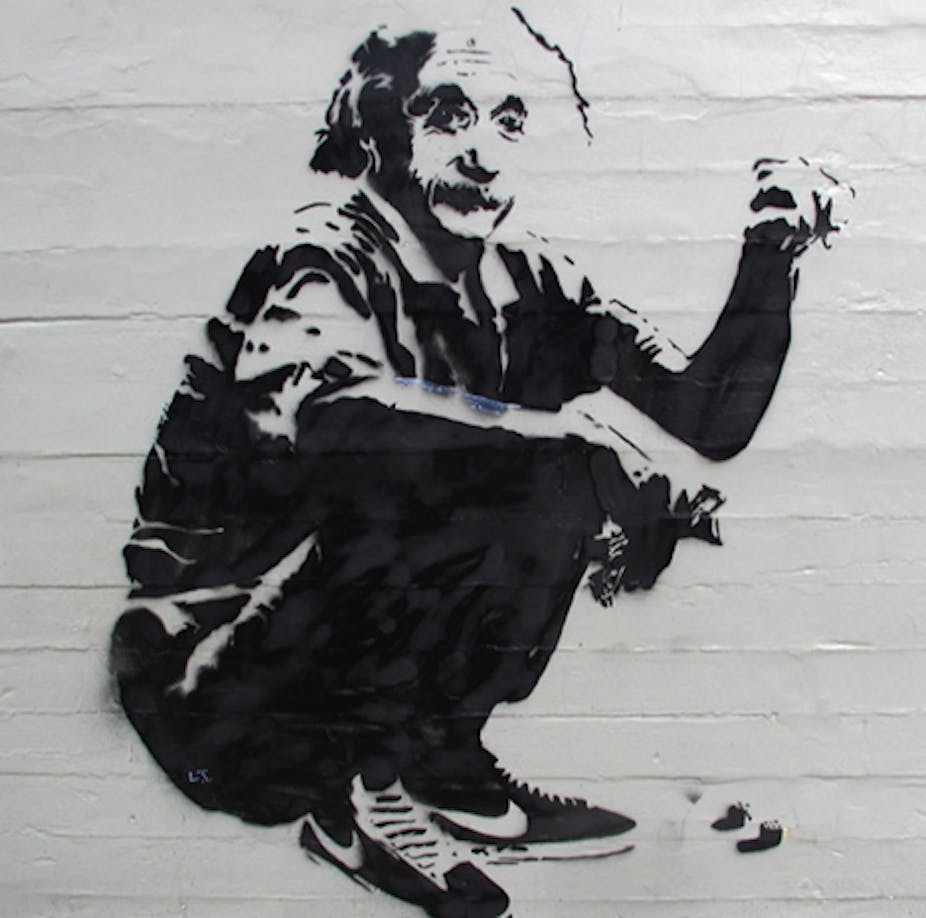Ok, so we’re easing into 2012. But now you’ve got some time, why don’t you catch up with some of the great reading you missed last year?
In case you missed them the first time, we’ve packaged up the Conversation’s ten best read articles for 2011…. Enjoy!
(1)** Ordering the vegetarian meal, there’s more animal blood on your hands** by Mike Archer AM, University of New South Wales (132,579 readers)
“The ethics of eating red meat have been grilled recently by critics who question its consequences for environmental health and animal welfare. But if you want to minimise animal suffering and promote more sustainable agriculture, adopting a vegetarian diet might be the worst possible thing you could do…” Read more
(2)** Explainer: Einstein’s Theory of General Relativity**, by Jonathan Carroll, University of Adelaide and Lewis Tunstall, University of Adelaide (82,119 readers)
“It’s the year 2100. You wake up alone in a small, windowless room. The only other thing in the room is a small ball. Maybe the room is located in your city, but maybe it’s inside that new spaceship everyone’s talking about. How can you tell?” Read more
(3)** Diamond planets, climate change and the scientific method**, by Matthew Bailes, Swinburne University of Technology (70,234 readers)
“Recently my colleagues and I announced the discovery of a remarkable planet orbiting a special kind of star known as a pulsar…” Read more

(4)** Mud power: how bacteria can turn waste into electricity**, by Ashley Franks, La Trobe University (48,267 readers)
“When you read the word "bacteria” you probably think about illness, advertisements for “probiotic” food supplements, and maybe about brushing your teeth…" Read more
(5)** Why do people reject science? Here’s why** by Stephan Lewandowsky, University of Western Australia (27,706 readers)
“Why do people distrust science? Why do some of us reject consensus on a whole range of scientific findings? As Professor Stephan Lewandowsky explains, it often comes down to the way we look at the world…” Read more
(6)** Did the black death give birth to modern plagues?** by Peter Reeves, University of Sydney (24,755 readers)
“Could contemporary plague outbreaks such as those that have hit Peru and the USA have their origins in the medieval era? It would seem so…” Read more
(7)** Climate change is real: an open letter from the scientific community** signed by 87 academics (22,496 readers)
“The overwhelming scientific evidence tells us that human greenhouse gas emissions are resulting in climate changes that cannot be explained by natural causes…” Read more

(8)** Music pirates won’t rush to iCloud for forgiveness**, by David Glance, University of West Australia (16,772 readers)
“Some people, including on this site, have suggested there’s a loophole in Apple’s new iCloud that will allow people who illegally download music to somehow "launder” their dirty music files, getting a nice clean, and legal, license to the music stored on iCloud. This argument is flawed for two main reasons…" Read more
(9)** Who’s your expert? The difference between peer review and rhetoric**, by Ove Hoegh-Guldberg, University of Queensland (14,054 readers)
“Director of the Global Change Institute, Ove Hoegh-Guldberg submits some climate "sceptics” to peer-review and finds them wanting…" Read more

(10) Event horizon: The black hole in The Australian’s climate change coverage, by Michael Ashley, University of New South Wales (13,797 hits) (part of the Media and Democracy series)
“The "event horizon” of a black hole is one of the most mind-boggling concepts in astrophysics. The black hole’s stupendous gravity causes time itself to be warped — an astronaut falling inwards sufficiently slowly would see arbitrarily far into the future history of the universe during their final minutes and seconds before crossing the event horizon.…" Read more

